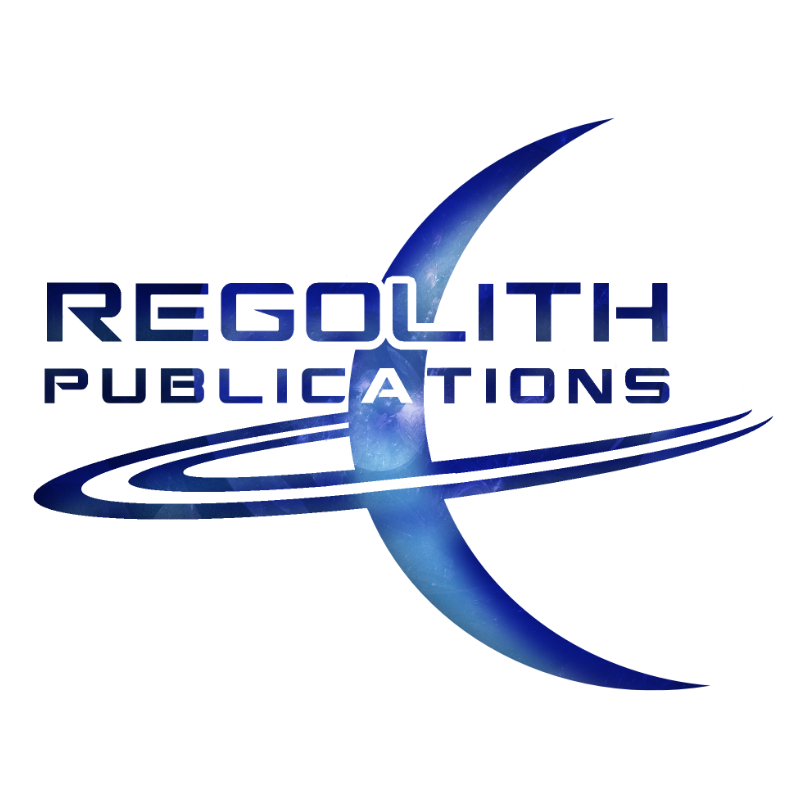|
"The oldest and strongest emotion of mankind is fear, and the oldest and strongest kind of fear is fear of the unknown." --H.P. Lovecraft
Why do we FEAR that which we don't understand? This is a theme I explore in my series The Chronicles of Jegra: Gladiatrix of the Galaxy. In the prequel story, Origins of the Gladiatrix, my protagonist Jessica Hemsworth is abducted by aliens and taken aboard an alien slave trafficking ship where she is then sold to a bidder who buys her specifically to groom her for the Intergalactic Gladiatorial Syndicate. A galaxy-spanning gladiatorial fighting tournament designed to keep the masses entertained and distracted from the empire building that is subjugating most of them and exploiting their resources. Jessica's fears are mundane at first. She fears being late to work. She fears not being liked by the more beautiful librarian she works with. She fears her curmudgeonly boss who makes sexual advances toward her because he finds her an easy target. Then her life changes. Because she learns what REAL fear tastes like. Being snatched up by aliens is scary enough. Anal probes aside. Jessica simply doesn't have the confidence or experience she needs to deal with the world she's thrust in to. Everything is alien to her. Everything is unknown. When she is headed into a group of aliens, not knowing why, she's so terrified she pisses herself. Not very becoming of our heroine. But this is where things get interesting. She has to make a choice. Does she face the unknown, and persevere? Or does she continue to a coward like she always has done? After she is sold off she is sedated only to wake up hours later in a cage next to other prisoners who are about to be sent into the gladiatorial arena in Arena City on the desert moon Thessalonica. A moon that orbits Dagon Prime, home world to the Lord Emperor Dakroth, leader of the most powerful empire in the galaxy. Before her debut match, however, she is injected with a serum. She believes it to be routine, and she befriends a peculiar satyr named Grendok who gives her some sagely advice on surviving. It turns out the serum she was given modifies her, in real time, and she grows into a She-Hulk sized Amazonian woman who is taller, stronger, with rippling muscles, and a gravity-defying bosom. Meager Jessica Hemsworth giggles at the changes and can't believe her eyes. It's outlandish. Impossible even. And, yet, she continually finds herself in impossible situations. Now that she has the strength of She Ra and Wonder Woman combined, she doesn't fear anymore. She marches onto the field and fights. Like she's expected to. She gets clobbered. Of course, having no experience, but her raw strength ends up saving her. Bloodied and battered, she gets praised by the crowd and gets a newfangled confidence she never had before. The announcer, who cannot seemingly pronounce Jessica, announces her as Jegra, and the rest is history. The Gladiatrix of the Galaxy is born. But even as she becomes more powerful, the various themes of fear seep into every aspect of the story. Jegra's greatest fear is that her friends will be hurt because of her. She is a magnet for a certain kind of violence that continually endangers the safety of those around her. And she realizes this all too late, when her girlfriend, an intersex Dagon woman, chastises her for being reckless in her choices. Our heroine then must face challenge after challenge, including betrayal, imprisonment, isolation, and being powerless to prevent others from harming the people she cares about. Every fear that Jegra has ever had compounds, and she swears to fight until the end to right the wrongs. Because she is the only one who can. This is a big set up, of course, because in the background, a cosmic entity known as H'aaztre has been growing in power. And, eventually, this supernatural being will threaten the fate of the entire galaxy. And the only one powerful enough to stop him, well, I don't want to give away any spoilers. But you can see where the story is headed. My goal in telling this epic space yarn was to play on all the valid fears we have as well as the invalid. An example would be this. Jegra fears for her friend's safety. This is a valid fear we all may experience. Jegra's lover and girlfriend is an intersex transsexual blue-skinned alien woman replete with vestigial, yet still functioning male organs. Jegra discovers that alien species are more diverse in sex and their sexual make up than humans could ever have imagined, and she grows comfortable with the idea that she must choose love above physical attributes. In other words, she has to get over any hang-ups about sex, gender, and sexual orientation and just accept the variety of intergalactic life. After all, we're not dealing with just humans and anthropomorphized alien beings here. So, she has to let go of any irrational fear regarding notions of sex she once may have had. (Surprisingly, many readers cannot and find this aspect of the story grotesque. But, again, highlighting the irrationality of the fear should make them feel equally uncomfortable, and if my books ever have any political agenda it would be to show that love is powerful enough to overcome any irrational fears we may have). In the end, Jegra loves her friends, because they represent the family she never had. They become her home away from home and it’s all she had. The fear of losing them would destroy her. Which is why she fights so hard to keep them safe. Coming out of horror, I wanted to keep a string of tension throughout the series, and I found that through the myth building of my Jegra universe, I was able to weave in a strand of cosmic horror -- a horror of the unknown. The dark void at the end of all time. And the strange tear in space that threatens to eat anything that approaches it. These all tie back to the mythos building of these fantastic alien worlds, the beings that populate them, their cultures, and the ancient religions they practice. Stories only feel believable when they are populated with realistic characters, cultures, and environments, and not having any actual alien worlds to study -- I have to imagine them into existence, and so, I try to paint them with highly detailed characters, cultures, and environments. Everything that lends to a sense of realism. And fear, yes FEAR, is one of the emotions we ALL experience. As such, relying on this primal emotion gives my whole universe a cohesive sense of "it could actually be like this because I've felt this way too" that makes everything else, even outlandish Amazonian warriors with large tits, all the more believable. It's only when I see readers saying that my Jegra series has the best world-building they've ever read, that I know I've succeeded in drawing them in. Not only with the minute details that flesh out the worlds and races in astounding detail, but the emotional realism as well. Jegra book 2, Imperatrix of the Galaxy is now available. So, be sure to check it out if you haven't already. And, as always, feel free to drop a review.
0 Comments
Recently, I ran into an interesting publishing problem.
I found that if I put my Jegra book 2, Imperatrix of the Galaxy, into expanded distribution (ExD), I am forced to raise the price of the paperback to meet the minimum royalty requirement for ExD return. But if I raise the price, it takes it up $3 from the $15.99 price I have it at in order to match the pricing of the first book. Now, it's 100 pages more than the first book, so I could totally justify the price hike. The problem is that the Amazon recommended price for a book of my page count shouldn't exceed $17 on the standard paperback pricing chart which Amazon calculates for me automatically. It's a pickle for sure. My solution: Just don't put book 2 into expanded distribution. Yeah, libraries won't be able to order it and certain B&M bookstores, but until I'm selling the same amount of paperbacks as ebooks, the loss is likely minimal. In my estimation, it's better to have an affordable book more people will be willing to buy at a reasonable price (more bang for the buck so to speak), than a book that's priced slightly too high and risk scaring off potential new buyers (cost vs. value). Still, I really have no comparison to draw on, because until I sell a ton more paperbacks I won't know exactly how this affects me. Right now, not very much. Still, I found it interesting enough to share. I've always made it abundantly clear in the *book description* that my books have depictions of sex. Both casual and romantic. The question is, why would I dirty my writing with such banal depictions of human biological copulation? The answer is simple, because to NOT do so would mean my fictions would be fantasies.
Now, you might wonder, what do I mean by that? The truth of the matter is, I find books that avoid broaching the subject of sex all together FAR more fantastical and hard to believe that books that do. Sex is a part of life. In my experience, those who shy away from it do so for personal reasons, most probably because of childhood conditioning where they were never properly informed or made comfortable talking about the subject. But while it's fine to personally find it a topic that you'd wouldn't likely freely discuss, not even in polite company, to assume the rest of the world shouldn't presume to discuss it either is projecting one's own insecurities on an otherwise perfectly normal, and healthy subject matter. The fact that some people find sex repulsive, or, if not that, too intimate to talk about, says more about them than it does the nature of the discussion. Remember, birds do it, bees do it. Even educated fleas, do it. But, I'm not here to try and make you feel like a freak if you have a certain reservation toward something that is natural as eating and breathing -- for what else is the act of sex than our basic instinctual drive to procreate? The problem arises when people realize sex isn't merely a basic instinct and it isn't necessarily about procreation either. That's when people get "weird" about it, so to speak. They feel embarrassed by it. They feel embarrassed watching or reading about it. So, they avoid the topic. I realized early on in my writing carrier that I'd get more readers if I kept my work "clean." That means, without sex. But, I couldn't bring myself to do it. Why? It's too UNREALISTIC. Imagine an epic, sprawling, space opera without ever the hint of romance or sex? Imagine a Starship Enterprise without Captain Kirk's women (a term derived to explain his many promiscuous exploits) or the ever sexually adventurous Commander Riker, with his manspreading, over the chair leg swinging, bravado? Even modern Star Trek has depictions of sex. And, growing up watching Star Trek, I found this gave the series a certain credibility that safer, more kid-friendly science fiction seemed to lack. There's nothing wrong with enjoying stories that don't have sex in them. I enjoy many stories too. Many science fiction films I love don't even broach the subject. Even serious ones. Robocop, Predator, the Matrix. When it comes to literature, however, my favorite works of science fiction do, in fact, contain depictions of sex. Or makes allusions to it. Even Dune, which is fairly clean by nature, has concubine characters, prostitution, and makes references to pedophilia. Nothing is ever depicted in graphic detail, but you get a sense that behind the scenes, the adults are getting jiggy with it. Then there's my recent favorite science fiction series the Takeshi Kovach novels, upon which the Netflix series Altered Carbon was based on. And these books have a ton of sex. The first series, sex played a large theme in the story as well. In the second and third novels, it's there, it seems, just to keep up with the first book and to satiate reader expectation -- for those of us who like to slum it with our dirty imaginations. In my own books you'll find a strange juxtaposition of sex and violence. This is on purpose because we practically revel in violent entertainment. Its so saturated in everything from televised sports to your weekly cop procedural to your Hollwyood blockbuster that people don't even pay attention to it anymore. But if there's a single nip-slip on live broadcast television, everyone loses their mind and the topic is still talked about decades later. You can click on an ad on Facebook that will get you tickets to the next UFC match, follow your favorite fighters, and even see clips of their brutal blood-soaked matches. But if a girl shows even the slightest hint of an areola around a nipple, she has her account shut down and is banned from using Facebook. That's a strange double standard. Why should even the mere thought of sex cause such a knee-jerk reaction in people but brutal violence and gore, that's just fine and dandy? I find it extremely perverse. It may not be my most popular opinion, but I think something is wrong with you if you tolerate one and not the other. If you adhere to that double standard. Which is why I force and equal representation of sex and violence into all my works of fiction. It's there to make people feel uncomfortable on PURPOSE. Maybe they'll ask why? Maybe not. It's also there to add to that realism that, even if we do advance as a species, even is be become physically and mentally evolved beings, we don't stop having sex. Because that would mean the end of our species. And, not only that, but it would make for a very unrealistic story. However, all this is merely to explain why I utilize depictions of sex in my novels. It adds to the realism that brings out the characters and creates interesting interactions and dynamics that wouldn't exist without it. It adds to the layer of realism and also allows me to expose a perverse double standard that is both unfair and irrational. As for others, they may do it for the entertainment value alone, ala Altered Carbon, or they may do it for the realism, ala Dune. Either way, everyone had their own reasons. I was just sharing mine. In Jegra book 2, Imperatrix of the Galaxy, I write different types of sex scenes into it. But, like the first novel, they are tastefully done and each one serves in progressing the plot. If it wasn't part of the plot, and merely exploitative, I'd cut them out. But if you read the first book, Jegra: Gladiatrix of the Galaxy, you'll know the sex scenes are necessary for her character development and (in no small way) serve the plot. And you'll also know by the Christian reviewer that they are tastefully done. Because, as a writer, that's a challenge I enjoy taking on. Getting those who are uncomfortable with the topic to still enjoy the story even if it means having to face a topic that makes them feel vulnerable of slightly uncomfortable thinking about. And, as I stated last time, I fell that, as a writer, it's my responsibility to write worlds where we get beyond the narrow-minded prejudices of today and create a happier world for tomorrow -- one we can aspire to -- together. That's the power as a writer. That's my responsibility as a storyteller. And that's why I write with as much diversity as I do. Whether it comes to the types of characters I write, to their diverse sexualities and genders, to the actual nitty-gritty of the sex. But I try to do it tastefully. I try to do it realistically. And that way, my fictions won't be mere fantasies but will be visions of a future that represent unforeseen possibilities. |
Tristan VickBy day I am an educator and a cultural ambassador. By night I entertain notions of being a literary master. In reality I am just a family man and ordinary guy who works hard and loves writing just about as much as I love my family. Just about. AVAILABLE NOWNEWSLETTER
|
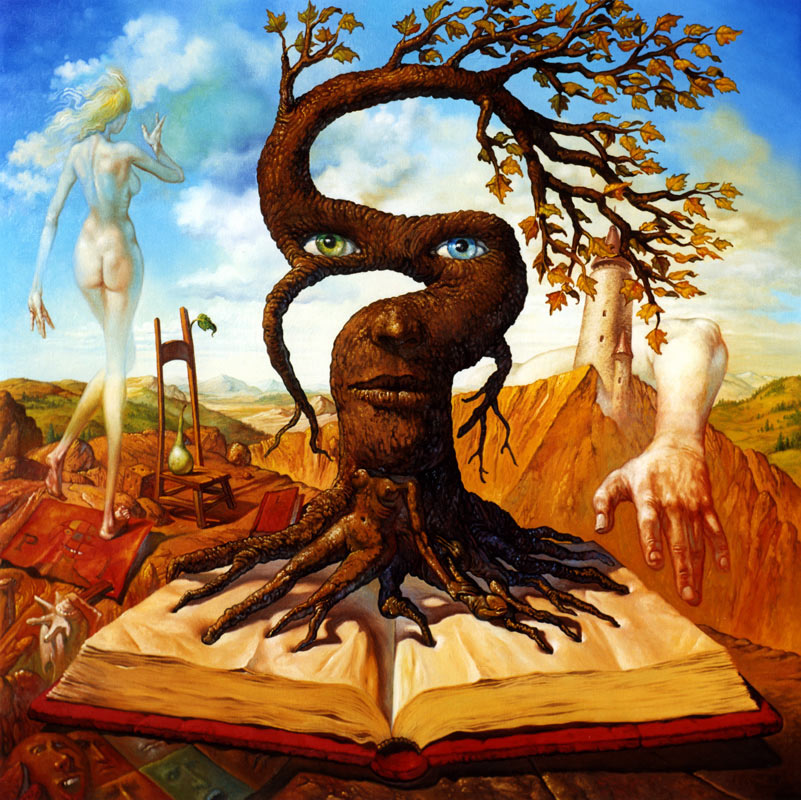
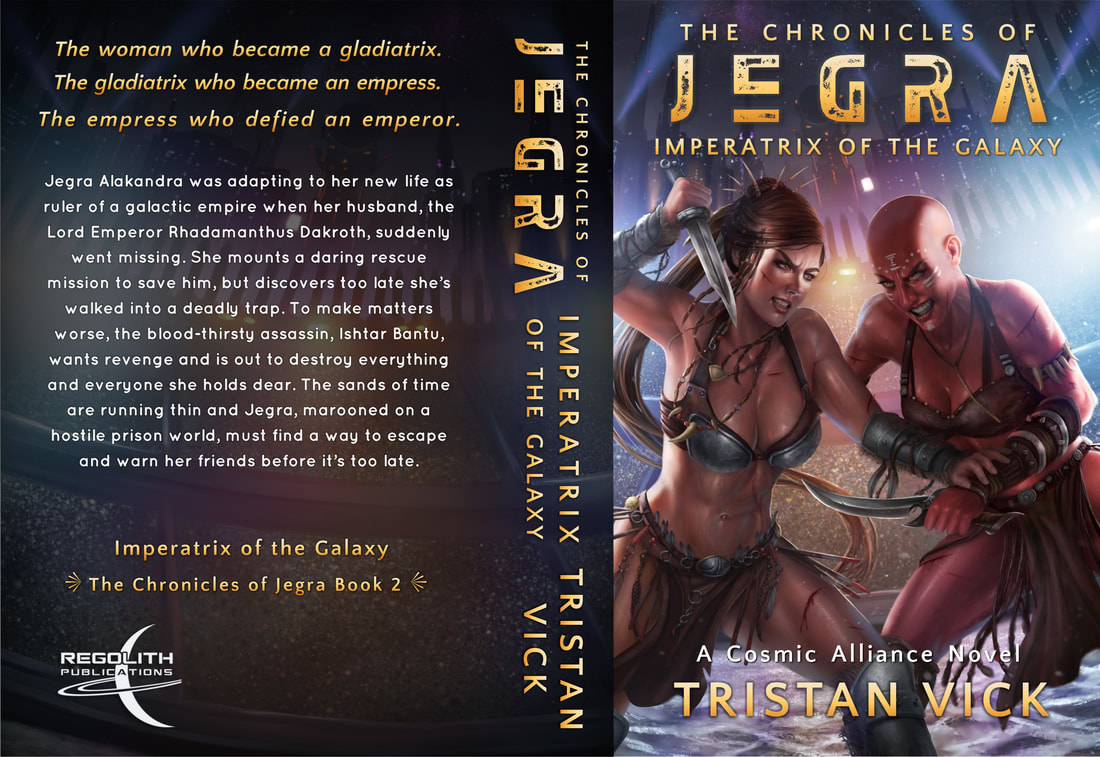
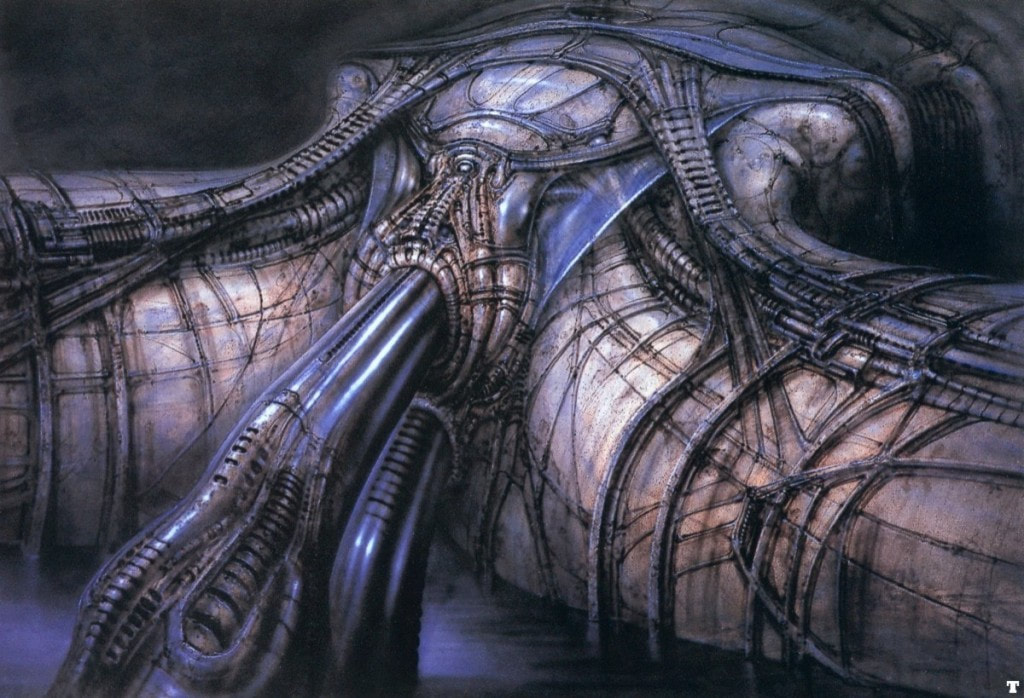

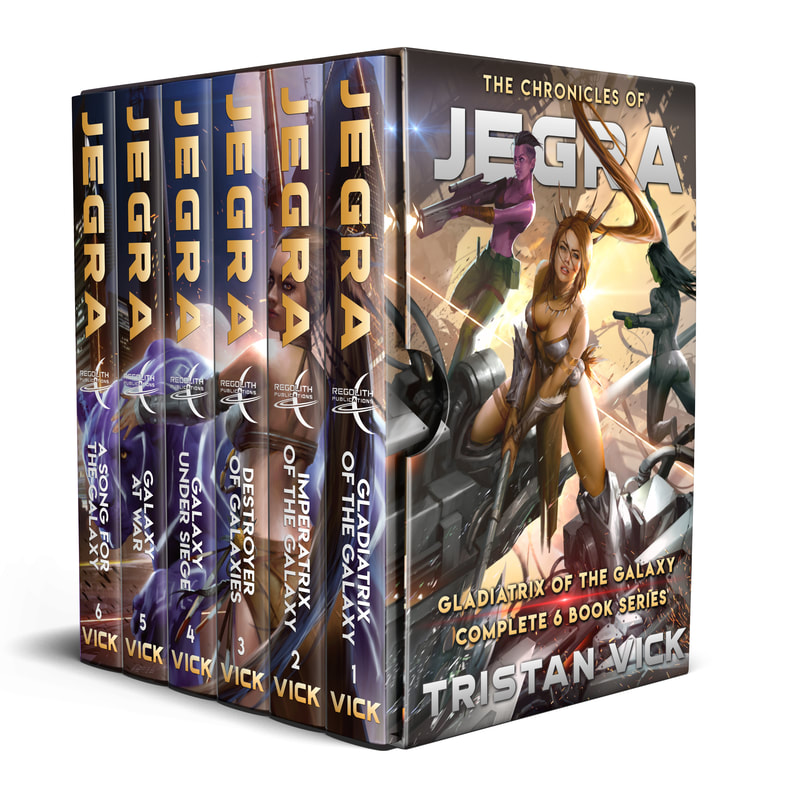
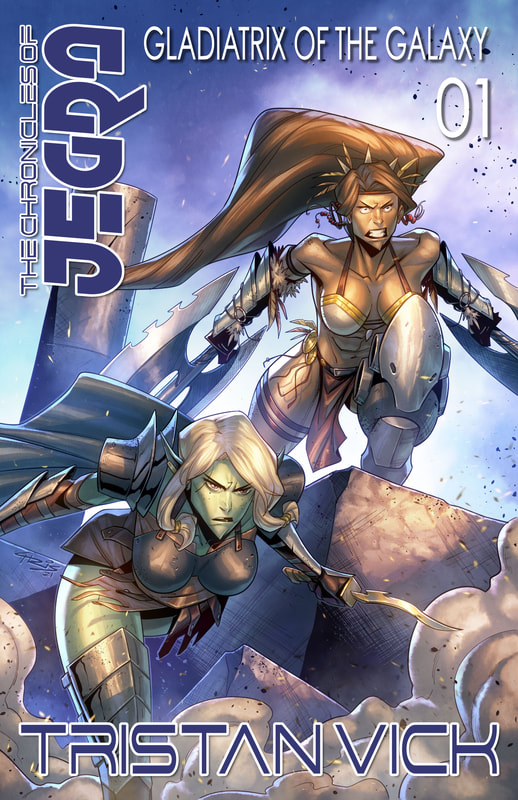
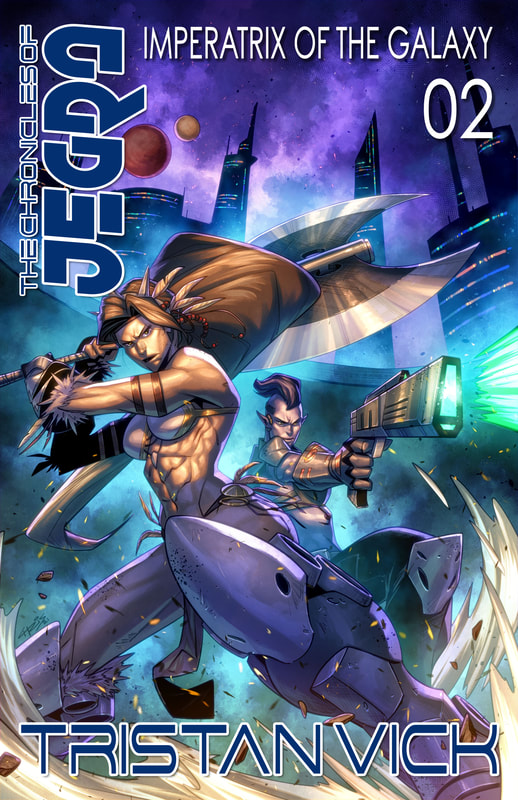
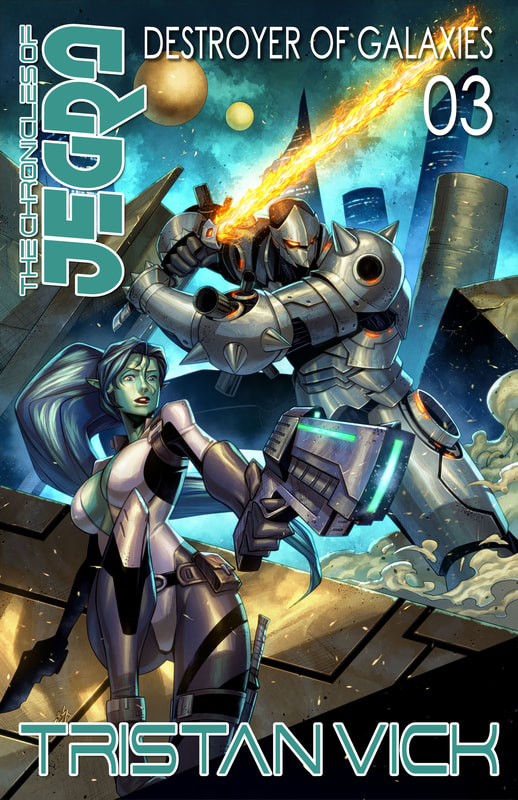
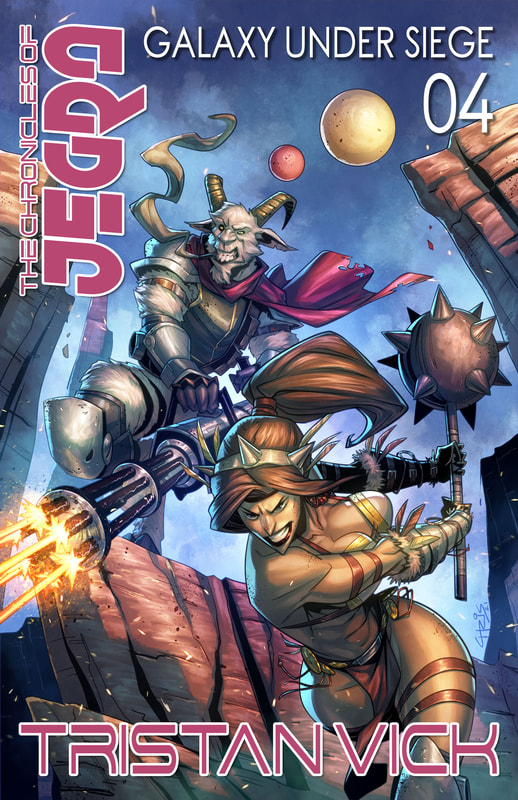
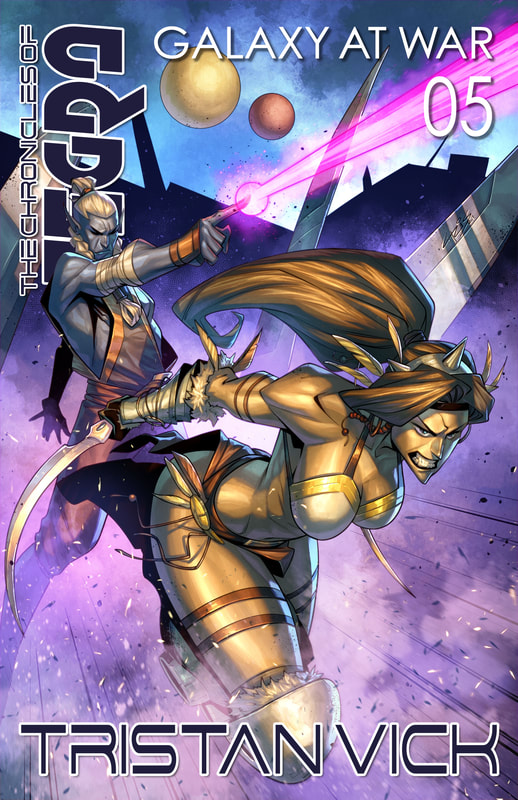
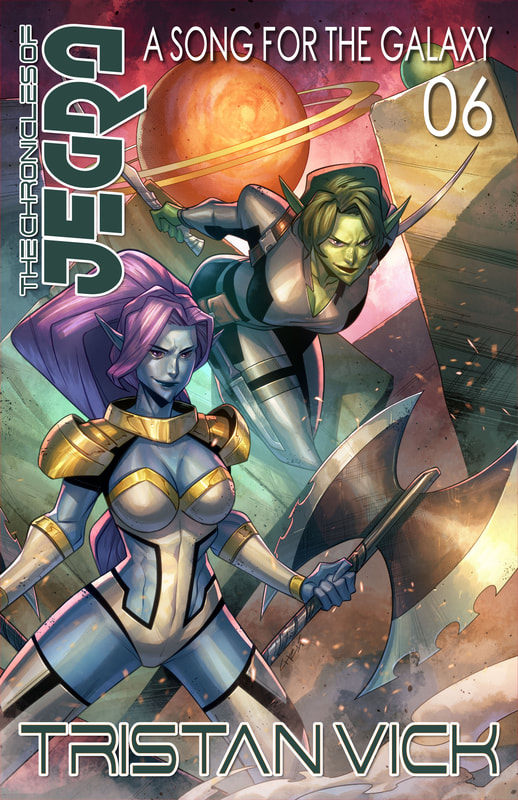
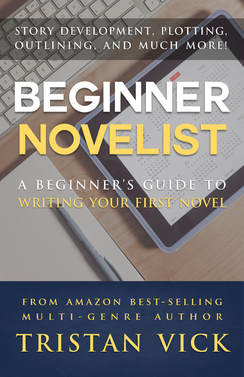
 RSS Feed
RSS Feed
